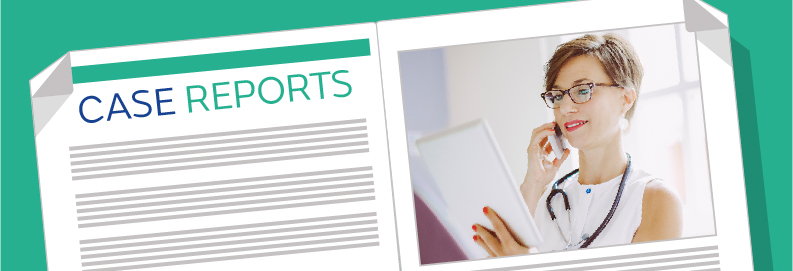Access to health records - Scotland
Providing access to medical records is essentially a confidentiality issue; therefore, the starting point is whether or not the patient has consented to disclosure. If not, access should be denied, unless there is some other clear justification for allowing access.
Read moreArticle contains
Managing challenging interactions
Every GP will experience challenging patients, says GP and Head of Member Education for MPS Dr Mark Dinwoodie, the key is how to manage those interactions in the best way.
Read moreArticle contains
Using NHS Choices
John Robinson is responsible for all the user generated content on NHS Choices, here he argues that by adopting a constructive approach to social media, rather than a defensive one, doctors can use online patient feedback to their advantage.
Read moreArticle contains
Report writing - Scotland
One incident can be investigated in a number of different ways – as a complaint, a clinical negligence claim, a criminal case, a disciplinary matter by your employer, a Procurator Fiscal’s FAI or a complaint to the GMC. An important starting point is your written report on the circumstances of the incident. This factsheet gives more information about writing this report.
Read moreArticle contains
Medical records - England
Good medical records – whether electronic or handwritten – are essential for the continuity of care of your patients. Adequate medical records enable you or somebody else to reconstruct the essential parts of each patient contact without reference to memory. They should therefore be comprehensive enough to allow a colleague to carry on where you left off.
Read moreArticle contains
Tagged in...
Needlestick injuries - England
Article contains
Tagged in...
Access to health records - Northern Ireland
Providing access to medical records is essentially a confidentiality issue; therefore, the starting point is whether or not the patient has consented to disclosure. If not, access should be denied, unless there is some other clear justification for allowing access.
Read moreArticle contains
Mental Capacity Act 2005 – Lasting Powers of Attorney - England and Wales
The Mental Capacity Act (MCA ) creates a new form of power of attorney – Lasting Power of Attorney (LPA), which gives another individual the authority to make decisions for an individual who now lacks capacity. This factsheet gives you more information about LPAs.
Read moreArticle contains
Tagged in...
Mental Capacity Act 2005 – Court of Protection and deputies
The Mental Capacity Act (the Act) established the Court of Protection, whose role it is to protect individuals who lack capacity and make rulings on difficult decisions about their care and welfare. This factsheet gives you more information about the role of the Court of Protection.
Read moreArticle contains
Tagged in...
Mental Capacity Act 2005 - Advance decisions - England
An advance decision (“living will”) to refuse future medical treatment – should the patient then lack capacity – can be made by a person who is over 18 and who has capacity. This factsheet gives further information about advance decisions.
Read moreArticle contains
Tagged in...
67% of doctors in Scotland do not believe legal duty will improve openness
A Medical Protection Society (MPS) survey of over 290 members in Scotland reveals that 67% of respondents do not believe a duty to be open with patients will improve openness. Of the 296 doctors surveyed by MPS, 66% were not aware of the proposals for a duty of candour and 70% believe a statutory duty to admit mistakes would be difficult to enforce.
Read moreArticle contains
Medical Innovation Bill - risk to responsible innovation
81% of doctors in Scotland believe new criminal sanctions will create a culture of fear
A Medical Protection Society (MPS) survey of over 290 members in Scotland reveals that 81% believe the proposed new criminal sanctions for healthcare professionals who wilfully neglect or ill-treat patients will create a culture of fear and 75% believe doctors are currently fully accountable for errors that may happen.
Read moreArticle contains
Safe prescribing - Northern Ireland
Medication errors account for approximately 20% of all clinical negligence claims against doctors in both primary and secondary care. The costs associated with adverse events and inappropriate prescribing have been estimated at more than £750 million per year. This factsheet gives advice about avoiding prescribing errors.
Read moreArticle contains
Statement of fitness for work - Northern Ireland
Fit note is an informal name for the Statement of Fitness for Work. The Statement intends to advise patients who are on sick leave for more than seven days on whether, with extra support from their employer, they could return to work.
Read moreArticle contains
Statement of fitness for work - Scotland
Fit note is an informal name for the Statement of Fitness for Work. The Statement intends to advise patients who are on sick leave for more than seven days on whether, with extra support from their employer, they could return to work.
Read moreArticle contains
Tagged in...
Statement of fitness for work
Fit note is an informal name for the Statement of Fitness for Work. The Statement intends to advise patients who are on sick leave for more than seven days on whether, with extra support from their employer, they could return to work.
Read moreArticle contains
Confidentiality – General principles - Wales
Confidentiality is at the centre of maintaining trust between patients and doctors. As a doctor, you have access to sensitive personal information about patients and you have a legal and ethical duty to keep this information confidential, unless the patient consents to the disclosure, disclosure is required by law or is necessary in the public interest. This factsheet sets out the basic principles of confidentiality.
Read moreArticle contains
Confidentiality – General principles - Scotland
Confidentiality is at the centre of maintaining trust between patients and doctors. As a doctor, you have access to sensitive personal information about patients and you have a legal and ethical duty to keep this information confidential, unless the patient consents to the disclosure; disclosure is required by law or is necessary in the public interest. This factsheet sets out the basic principles of confidentiality.
Read moreArticle contains
Confidentiality - General principles - England
Confidentiality is at the centre of maintaining trust between patients and doctors. As a doctor, you have access to sensitive personal information about patients and you have a legal and ethical duty to keep this information confidential, unless the patient consents to the disclosure, disclosure is required by law or is necessary in the public interest. This factsheet sets out the basic principles of confidentiality.
Read moreArticle contains
Tagged in...
Statement of fitness for work
Fit note is an informal name for the Statement of Fitness for Work. The Statement intends to advise patients who are on sick leave for more than seven days on whether, with extra support from their employer, they could return to work.
Read moreArticle contains
Tagged in...
Confidentiality – General principles - Northern Ireland
Confidentiality is at the centre of maintaining trust between patients and doctors. As a doctor, you have access to sensitive personal information about patients and you have a legal and ethical duty to keep this information confidential, unless the patient consents to the disclosure; disclosure is required by law or is necessary in the public interest. This factsheet sets out the basic principles of confidentiality.
Read moreArticle contains
MPS survey reveals 46% of GPs believe patients are more violent and aggressive than five years ago
A Medical Protection Society (MPS) survey of 254 GP members reveals that 46% of GPs believe patients are more violent and aggressive than five years ago, while 35% think the situation is about the same. Worryingly, 51% of GPs have experienced violent or aggressive behaviour from patients and sadly 34% of those accepted it as part of their job.
Read more



